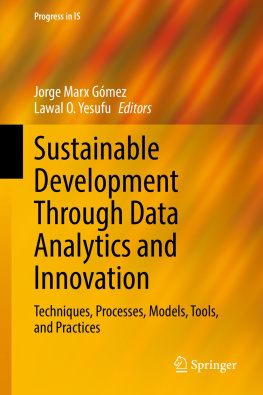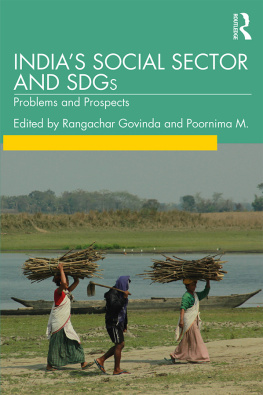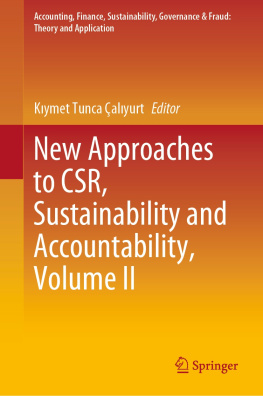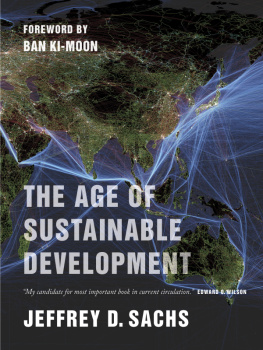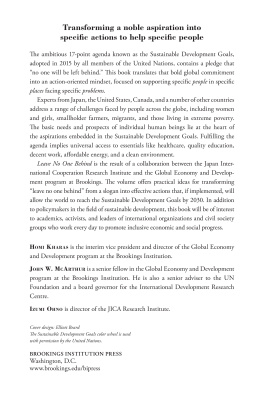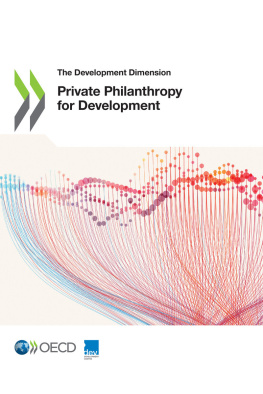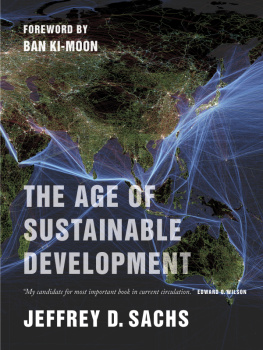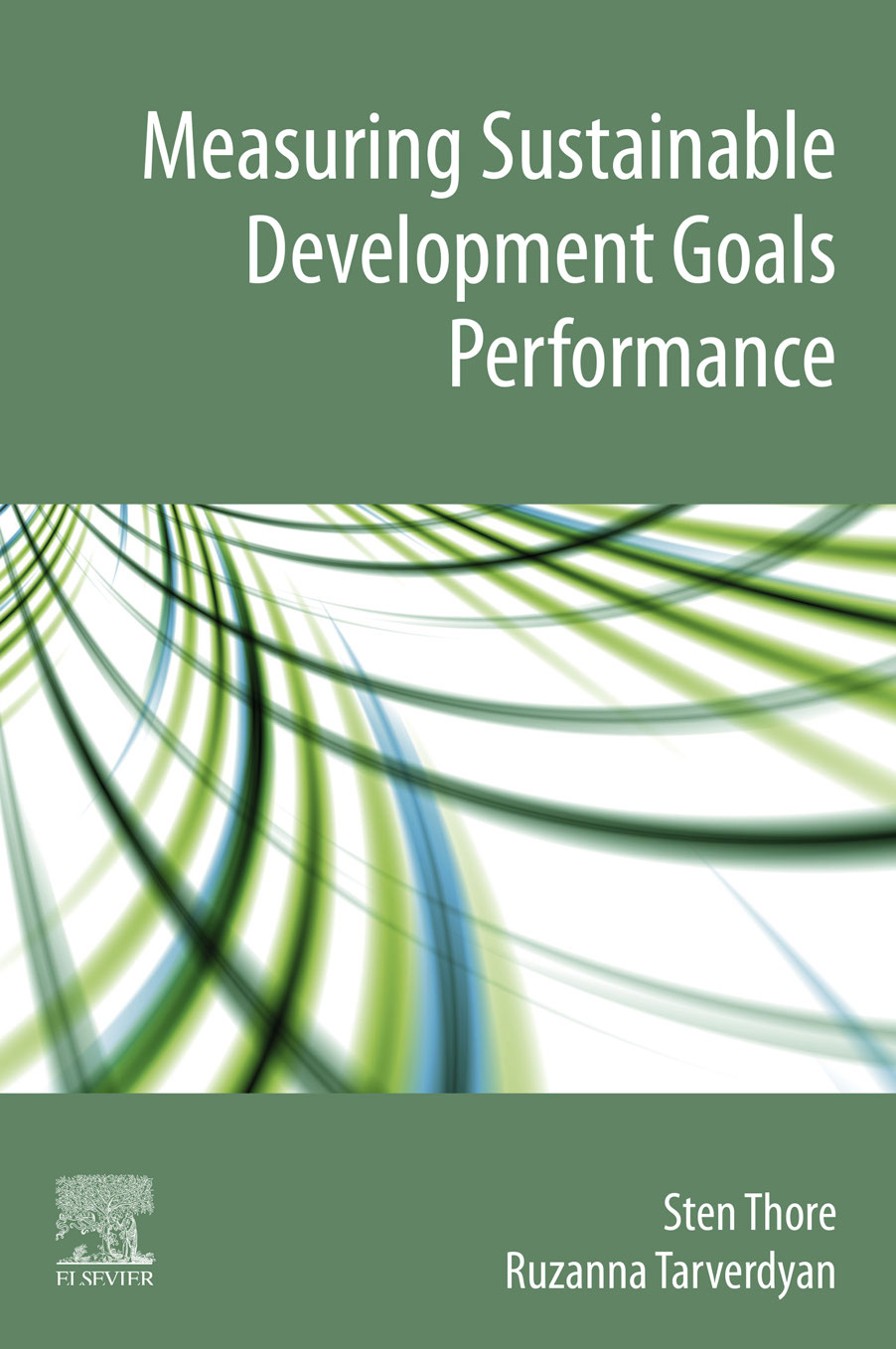
Measuring Sustainable Development Goals Performance
Sten Thore
University of Texas, United States
Ruzanna Tarverdyan
The Geneva Consensus Foundation, Switzerland

UNTITLED
Copyright
Elsevier
Radarweg 29, PO Box 211, 1000 AE Amsterdam, Netherlands
The Boulevard, Langford Lane, Kidlington, Oxford OX5 1GB, United Kingdom
50 Hampshire Street, 5th Floor, Cambridge, MA 02139, United States
Copyright 2022 Elsevier Inc. All rights reserved.
No part of this publication may be reproduced or transmitted in any form or by any means, electronic or mechanical, including photocopying, recording, or any information storage and retrieval system, without permission in writing from the publisher. Details on how to seek permission, further information about the Publishers permissions policies and our arrangements with organizations such as the Copyright Clearance Center and the Copyright Licensing Agency, can be found at our website: www.elsevier.com/permissions .
This book and the individual contributions contained in it are protected under copyright by the Publisher (other than as may be noted herein).
Notices
Knowledge and best practice in this field are constantly changing. As new research and experience broaden our understanding, changes in research methods, professional practices, or medical treatment may become necessary.
Practitioners and researchers must always rely on their own experience and knowledge in evaluating and using any information, methods, compounds, or experiments described herein. In using such information or methods they should be mindful of their own safety and the safety of others, including parties for whom they have a professional responsibility.
To the fullest extent of the law, neither the Publisher nor the authors, contributors, or editors, assume any liability for any injury and/or damage to persons or property as a matter of products liability, negligence or otherwise, or from any use or operation of any methods, products, instructions, or ideas contained in the material herein.
Library of Congress Cataloging-in-Publication Data
A catalog record for this book is available from the Library of Congress
British Library Cataloguing-in-Publication Data
A catalogue record for this book is available from the British Library
ISBN: 978-0-323-90268-7
For information on all Elsevier publications visit our website at https://www.elsevier.com/books-and-journals

Publisher: Joe Hayton
Acquisitions Editor: Kathryn Eryilmaz
Editorial Project Manager: Michelle Fisher
Production Project Manager: Maria Bernard
Cover Designer: Miles Hitchen
Typeset by TNQ Technologies
Foreword
In todays rapidly changing world, the importance of rigorous analysis to inform policy making using publicly available data cannot be underestimated. The United Nations 2030 Agenda for Sustainable Development, with its 17 goals, 169 targets, and 230 indicators, provides a rich framework to analyze the performance of countries over time and to compare to their peers. The people-centered and universal goals and targets defined in the 2030 Agenda are integrated and indivisible, and they balance the three dimensions of sustainabilityeconomic development, social progress, and environmental protectionsimultaneously seeking to leave no one behind and to strengthen universal peace. This publication uses open data sources and well-established statistical methods to offer the reader a set of conclusions that are evidence-based and transparently derived, thus providing us with unbiased insights.
The 2030 Agenda unanimously agreed by 193 heads of states is a powerful manifestation of commitment to the future we want and of political will to forge a global partnership by all countries and stakeholders to attain the Sustainable Development Goals (SDGs). These transformative SDGs, defined in this new historical plan of action for people, planet, and prosperity, are an articulation of solidarity. This is precisely what is needed in times of great despair and uncertainty, partly due to the ongoing pandemic but also to continuing technological transformation and globalization, which leave many of our citizens with a sense of insecurity about whether or not living standards will continue to improve.
It cannot be emphasized enough that the finish line of 2030 is fast approaching, and analyses like the one presented in this book can assist to speed up the attainment of the SDGs. In 2019, the UN Secretary General called on all sectors of society to mobilize for a decade of action to generate an unstoppable movement pushing for the required transformations needed to implement the 2030 Agenda. However, it is clear to many experts in the field that the world is not on track in achieving the SDGs.
Put simply, data tell us where we stand in the race to achieve the SDGs. Ratings and rankings can always be further improved, but metrics can be a great motivator and provide a powerful challenge to the policymakerthe same way they motivate an Olympic athlete to improve the focus of his or her training and the use of available resources to go faster, higher, and stronger. This publication seeks to convey the richness of the statistics sets using a data-driven method to tease out insights for country policy makers and development practitioners that can assist them to improve the performance of their country on the attainment of the SDGs.
The policy effectiveness rating proposed by the authors transcends the standard measures of economic, social, and environmental performance. It points out to various inefficiencies and development challenges and distills lessons that governments and other development organizations and partners alike can take into account when developing comprehensive policy advice for regional, industry and global agendas while we strive to implement the 2030 Agenda for Sustainable Development.
Mahmoud Mohieldin
UN Special Envoy for the 2030 Development Agenda,
Executive Director International Monetary Fund
Preface
Our warmest thanks are due to the senior management at Elsevier for inviting us to expand our 2016 article The Sustainable Competitiveness of Nations, Journal of Technological Development and Social Change into a full-length book and for having patience with us as our manuscript gradually evolved.
The present result should be seen as an update and sequel to our 2015 book Diagnostics for a Globalized World, Now Inc and World Scientific. Just a few months after that earlier work rolled off the printing press, world leaders at a UN meeting in New York agreed on their 2030 Agenda for world sustainable development, listing 17 sustainable development goals. The Agenda urged all nations to coordinate their social and economic policies aiming for these goalsthe very kind of task that we had addressed, providing the mathematical machinery for assessing the success or shortcomings of the performance of each nation.
The arrival of the COVID-19 pandemic has made social and economic policy infinitely more difficult. The attempts of nations to control the spread of the virus and to contain the death rates no doubt impact in many as yet unknown ways on their sustainability record. We shall learn more about this as UN member nations file their reports at the Statistical Commission.



